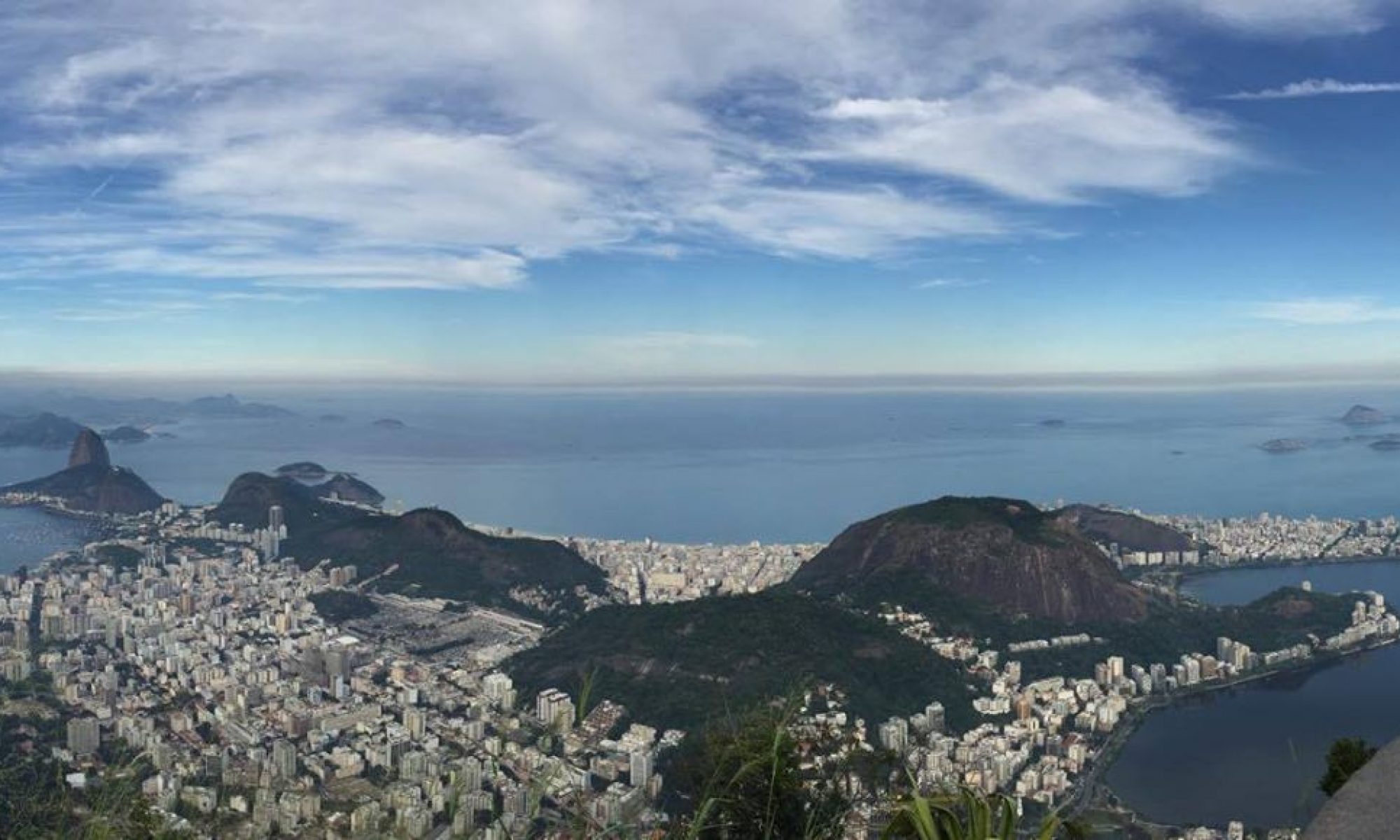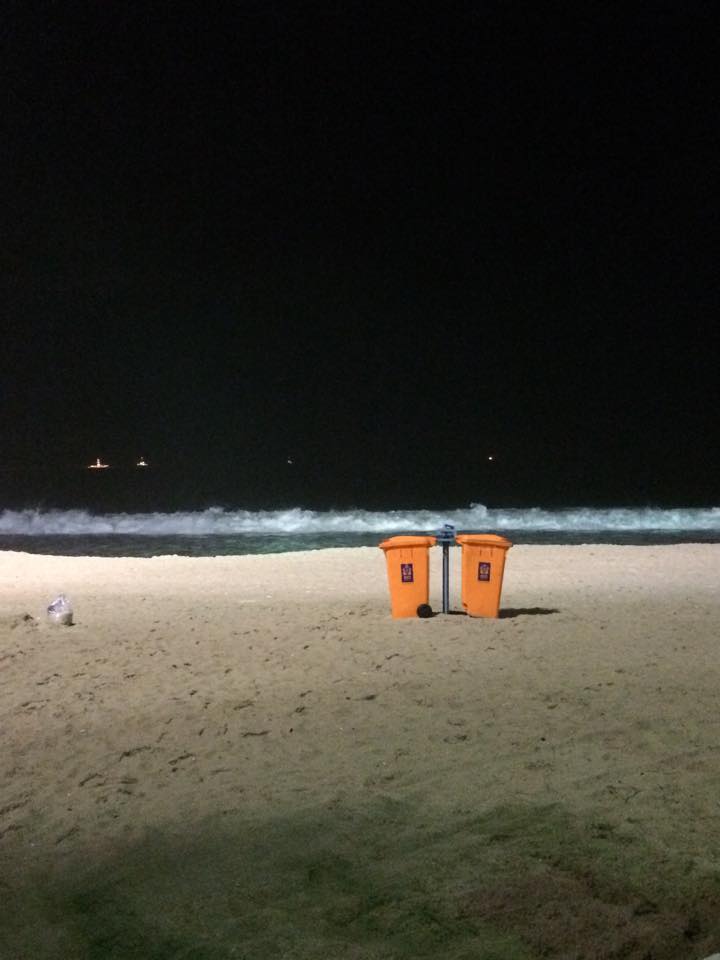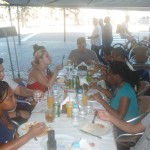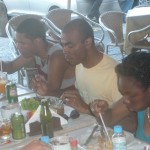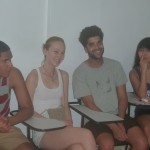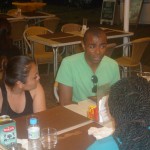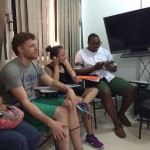May 29, 2015
By: Janel Pineda and Estiven Rodriguez
Today, we had our first morning free of events since our first activity, a discussion with a Rio public school teacher, wasn’t until 3 p.m. Some students decided to take this as an opportunity to wake up early and head to the beach. We only have 10 days left in Rio de Janeiro so anytime we can head to the beach, it’s guaranteed relaxation. At the beach, the water temperature was perfect while the waves were high and powerful. As we tried to get deeper into the ocean, the waves continuously pushed us back to shore. There were many street vendors selling clothes, food and even umbrellas. Professor Barnum even joked that if we stayed at the beach for the whole day, we could probably end up fully clothed and with full stomachs. Since 64% of Afro-Brazilians live in poverty, it was not surprising to see that all the vendors at the beach had a dark complexion. From beach vendors that were selling camarão (shrimp) and guarana (Brazilian soda) many would be considered Afro-Brazilian in Rio de Janeiro.
For the students who chose to sleep in or stay at the hostel rather than make the trip to the beach, the challenge was going to lunch on our own. We were able to make our way to a restaurant along the beach and successfully ordered without the helpful translations provided by Professors Brito and Barnum. At the restaurant, the two groups of students reunited to enjoy lunch together.
Once we were all together, we headed to meet with a public school teacher from Rio. She talked to us about her experience with public education in Brazil, and specifically, the problems that it poses. Though she holds a prestigious educational background, she chooses to teach at public schools because, as she said, she came from it. She understands the transformative power of education, and the importance of having good mentors. Overall, her teaching ideals align with those discussed by Paulo Freire in Pedagogy of the Oppressed. Specifically, the idea of student-teachers and teacher-students, in which “the teacher is no longer merely the-one-who-teaches, but one who is himself taught in dialogue with the students, who in turn while being taught also teach. They become jointly responsible for a process in which all grow” (2012: 80). She works with students who have been failed by the school system time and time again; many of these students are from poor socioeconomic backgrounds and have been marginalized by society. We discussed the fact that students who come from slums are typically dismissed as “lazy” when the reality is that there are foundational problems with the way education is presented in Brazil. Because the school system is so corrupted, she is not able to engage students in the material she feels they should be learning. She does, however, challenge her students to think about their status in society. One anecdote she shared with us was that of a student coming to terms with his blackness in class; because blackness is viewed so negatively, it was easier for the student to reject this aspect of his identity.
The woman we met with also discussed the lack of value placed on the teaching profession; in terms of salary, teachers only make an estimated $18,000 USD per year—and this is only if the teacher works 40 hours or more per week. When she and her colleagues joined together to protest for a more just education system, the police used rubber bullets and gas against them. The teachers were essentially treated as criminals. Although teachers have the constitutional right to protest, the government penalized every teacher who challenged the status quo via the protest. Those who protested are now under investigation, and their salaries and positions are being continuously threatened. The teacher expressed her continuing passion for education despite the challenges and ultimately identified education as the solution for social mobility to be possible. For the most part, the discussion challenged us to reflect on the importance of education in challenging social issues around the world. Many students left the discussion feeling inspired by what she had said; others expressed feeling emotional in response to the gravity of the problems which we discussed.
Afterwards, we headed to dinner, during which we were able to continue our discussion with the teacher. She told us about Brazilian culture—her favorite dishes, hobbies, music, etc. On our way back to the hostel, we walked through a street market where many of us were able to purchase souvenirs and trinkets. We concluded the day with a debrief at the hostel in which we all stated our highs and lows, like a true study abroad family!
–
Freire, Paulo. Pedagogy of the Oppressed. Ed. Donaldo Pereira Macedo. Trans. Myra Bergman Ramos. New York: Continuum, 2012. Print.
